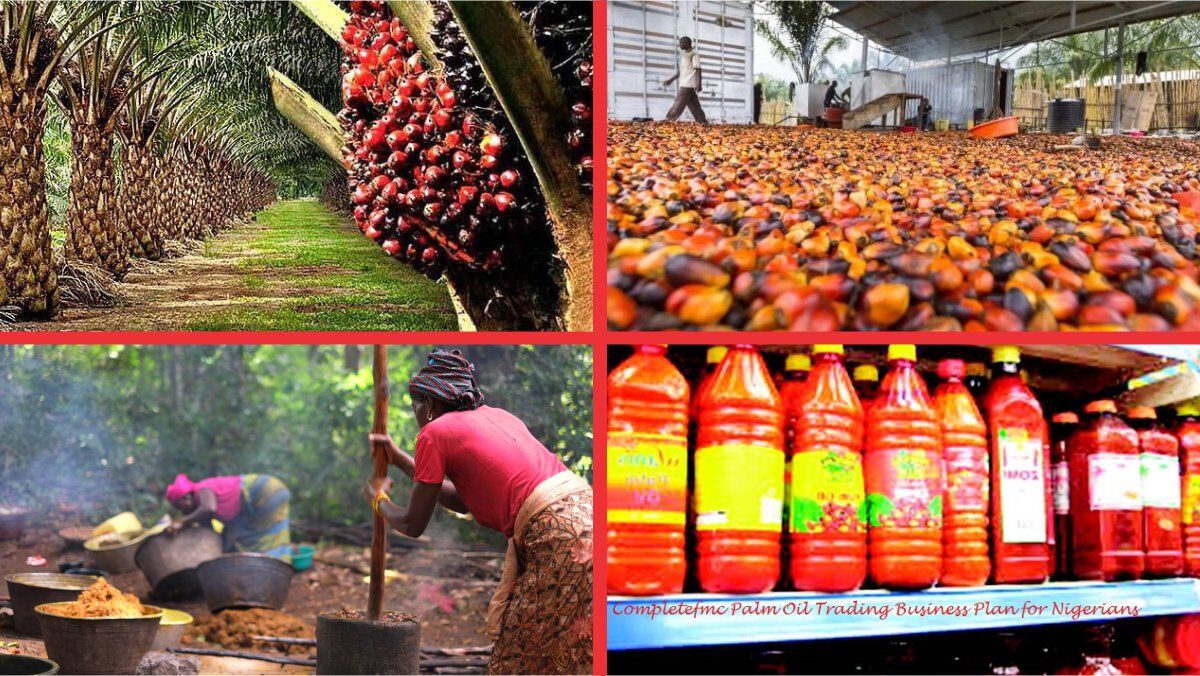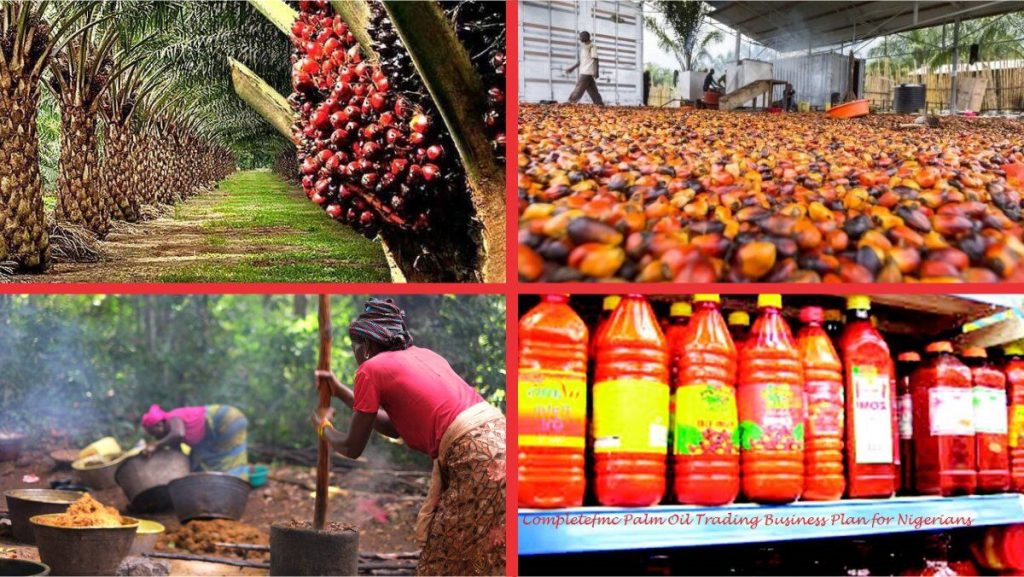Current Prices of Red Palm Oil in Nigeria

Have you ever wondered about the golden goodness that adds flavor and richness to many Nigerian dishes? Yes, we’re talking about red palm oil the vibrant liquid that holds a special place in Nigerian cuisine.
This edible vegetable oil is incredibly adaptable and has a wide range of qualities. Reduced cholesterol, support during pregnancy, enhanced cognitive function, slowed heart disease development, and enhanced skin and hair health are all benefits of palm oil.
But have you noticed any changes in its prices lately? Don’t worry, this web page will unveil to you the Current Prices of Red Palm Oil in Nigeria, how we can use them, health benefits, as well as some of the problems we may encounter during palm oil production.
We are sure you wouldn’t wish to miss out on this great opportunity, why not sit back and relax as we take you through all you need to know about Palm oil, current prices, production, and other frequently asked questions?
Palm Oil
Palm oil is an edible vegetable oil derived from the mesocarp of the fruit of the oil palms. The oil is used in food manufacturing, beauty products, and as biofuel. Palm oil accounted for about 36% of global oils produced from oil crops in 2014.
The juicy fruits of oil palm trees are the source of palm oil. Owing to its reddish-orange hue, unrefined palm oil is occasionally called red palm oil.
Originally from the coastal nations of West and Southwest Africa, such as Angola, Gabon, Liberia, Sierra Leone, Nigeria, and others, the Elaeis guineensis tree is the primary source of palm oil. The usage of it in these areas dates back a long way (1Trusted Source).
Though it’s seldom farmed commercially, South America is home to an oil palm comparable to this one, called Elaeis oleifera. Nevertheless, palm oil is occasionally produced using a hybrid of the two species.
Southeast Asian countries like Malaysia and Indonesia have seen an increase in oil palm development in recent years.
Red palm oil is a staple ingredient in Nigerian cuisine, used in everything from stews to soups to porridge. The price you pay can vary depending on several factors, including:
Quantity: Red palm oil is sold in a variety of quantities, from small bottles to large jerry cans. Bulk purchases are generally cheaper per liter.
Location: Prices can fluctuate depending on where you are in Nigeria. Here in Eket, Akwa Ibom, you might find slightly different prices than in other areas.
Quality: Freshly pressed palm oil may cost more than pre-packaged oil that has been shelf-stable for longer.

Without further ado, let’s look into the various prices of red palm oil in Nigeria as of today.
Current Prices of Red Palm Oil in Nigeria
| Palm oil Quantity | Price per litre |
|---|---|
| 5 litres | ₦3,000 |
| 10 litres | ₦6,000 |
| 25 litres | ₦15,000 |
| 50 litres | ₦30,000 |
Below are the current prices of palm oil in Nigeria based on location.
Eastern Palm Oil 25L ₦31,500.00
₦ 1,200. Akwa Ibom Fresh Palm Oil. Bulk prices.
₦ 16,500. Palm Oil (10ltrs) Bulk prices.
₦ 30,000. Palm Oil (Red Oil)
₦ 3,500. Redoil Palm Oil.
₦ 8,000. Red Palm Oil.
₦ 6,500. Original Red Oil (Palm Oil)
₦ 35,000. Okomu Banga Oil.
The price of palm oil per kilogram in Nigeria is subject to fluctuation due to an unstable economy. Currently, the average price of a gallon of palm oil in Nigeria is 2,400 naira, and typically, the price ranges from 1,000 to 1,500 Nigerian Naira per kilogram.
Red Palm Oil – Uses
1. Aside used in cooking, palm oil is added to a lot of the prepared goods at your grocery store.
2. It is said to have an earthy, savory flavor.
3. In Nigerian and Congolese cuisines, unrefined palm oil is a traditional staple that goes particularly well with curries and other spicy foods. Its flavor is compared by some to that of carrot or pumpkin.
4. Because refined palm oil is stable at high temperatures and has a high smoke point of 450°F (232°C), it is frequently used for sautéing or frying (4Trusted Source).
5. Peanut butter and other nut butter may have palm oil added as a stabilizer to keep the oil from separating and collecting at the top of the jar.
6. Refined palm oil is present in several different foods outside nut butter, such as:
Cereals
Bread, cookies, and muffins are examples of baked products
Protein and diet bars
chocolate creamers for coffee with chocolate margarine
Many non-food items including toothpaste, soap, and cosmetics also include this oil.
It may also be utilized to create biodiesel fuel, an additional source of energy.
Benefits of Red Palm Oil
As demand for palm oil continues to rise, there is growing concern about its sustainability and awareness that some palm oil is “good” and some is “bad”. Below are some of the health benefits of palm oil. They include:
1. Protecting brain function
A powerful antioxidant with vitamin E qualities, tocotrienols are found in palm oil and may help maintain brain function.
Research conducted on both humans and animals indicates that the tocotrienols present in palm oil may have the potential to halt the deterioration of dementia, lower the risk of stroke, and stop the development of brain lesions in addition to protecting the fragile polyunsaturated fats in the brain 8.
2. Reducing heart disease risk factors
There is evidence to suggest that palm oil can prevent heart disease. Despite conflicting findings from certain studies, this oil typically seems to have positive effects on heart disease risk variables, such as raising HDL (good) cholesterol and decreasing LDL (bad) cholesterol (11Trusted).
Participants in this trial were given two tablespoons (25 mL) of olive oil or a hybrid palm oil regularly. Researchers hypothesized that this palm oil may be referred to be “the tropical equivalent of olive oil” (12Trusted Source) based on a 15% decrease in LDL (bad) cholesterol in both groups.
It is crucial to remember, nevertheless, that changes in LDL (bad) cholesterol levels by themselves do not indicate an increased or decreased risk of heart disease. Numerous additional things are at play here.
3. Improved vitamin A status
Red palm oil may also help improve vitamin A status in people who are deficient or at risk of deficiency because it’s rich in carotenoids that the body can convert into vitamin A
Individuals suffering from a risk of deficiency can benefit from the carotenoids in red oil which is then converted into vitamin A.
Disadvantages
1. Some ethical issues associated with producing palm oil in our environment include; affecting our wildlife, and communities.
2. Destruction of peatland, and tropical forests just for palm oil plantation. Forest plays an essential role by absorbing carbon from the atmosphere, hence Deforestation automatically affects net carbon emissions negatively.
3. Also, the health and diversity of wildfires have been threatened due to the change in the ecosystem caused by the destruction of native landscapes.
Especially concerning is the impact on endangered species such as Bornean orangutans, which are facing extinction due to habitat loss
4. The palm oil cooperation has tremendously, tampered with the rights of humans by invading farmlands without authorization, providing unsafe working conditions, and paying low wages to laborers which have significantly reduced the quality of life.
5. Air pollution. Burning is a common method for clearing vegetation in natural forests as well as within oil palm plantations.
6. Soil and water pollution. A palm oil mill generates 2.5 metric tons of effluent for every metric ton of palm oil it produces.
7. Soil erosion
The current challenges of the palm oil sector in Nigeria include declining production, outdated equipment, aging plantations, lack of technology access, insufficient financing, poor milling practices, and a shortage of good planting materials.
Frequently Asked Questions
How much is 25 litres of palm Oil in Akwa Ibom?
Where can I buy palm oil in bulk in Nigeria?
Summary
One of the most popular oils used worldwide is palm oil; however, it should not be confused with palm kernel oil, which comes from the same plant but is extracted from the fruit’s seed and has different health benefits.
The effects of palm oil production on the environment, the health of wildlife, and the lives of Indigenous people are extremely concerning. If you choose to use palm oil, try to buy ethical, RSPO-certified brands or, if possible, buy it directly from small farms.
As you can see, the price of red palm oil in Nigeria can vary significantly depending on the quantity, location, and quality you’re looking for. It’s always a good idea to shop around at your local markets or online retailers to find the best deal.
For the most up-to-date information, consider checking online marketplaces or contacting local stores directly before your next shopping trip.
